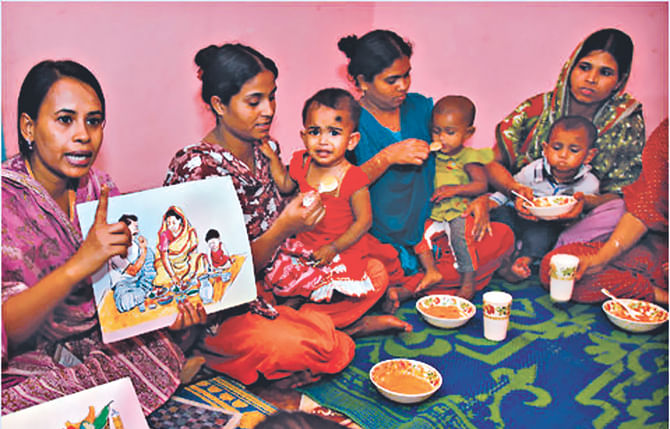Better nutrition, better lives
Better nutrition, better lives

Millions of people are not getting enough to eat, and millions of others are eating too much of the wrong foods. Many families cannot afford enough nutrient rich foods like fresh fruit and vegetables, beans, meat and milk, while foods and drinks high in fat, sugar and salt are cheap and readily available. Undernutrition and overweight are two different forms of malnutrition often overlap, with people living in the same communities – sometimes even in the same household – suffering from hunger, micronutrient deficiencies and obesity. This indicates our food systems are broken.
In a major step towards fixing food systems and eradicating malnutrition worldwide, over 170 countries recently made a number of concrete commitments and adopted a series of recommendations on policies and investments aimed at ensuring that all people have access to healthier and more sustainable diets. The move came at the Second International Conference on Nutrition (ICN2) in Rome, Italy, organized by the Food and Agriculture Organization of the United Nations (FAO) and World Health organisation (WHO).
The Framework for Action entitled “The Rome Declaration on Nutrition” enshrines the right of everyone to have access to safe, sufficient and nutritious food, and commits governments to preventing malnutrition in all its forms, including hunger, micronutrient deficiencies and obesity. It recognizes that governments have the primary role and responsibility for addressing nutrition issues and challenges, in dialogue with a wide range of stakeholders-including civil society, the private sector and affected communities.
The Framework lays out effective accountability mechanisms, including monitoring frameworks to track progress as well as nutrition targets and milestones based on internationally agreed indicators. Signatory countries should achieve specific results by 2025, including existing targets for improving maternal, infant and young child nutrition, and for reducing nutrition-related risk factors for noncommunicable diseases such as diabetes, heart disease and certain cancers.
Sustainable food system is key to promoting healthy diets. Governments should have policies that promote nutrition-enhancing agriculture, by integrating nutrition objectives into the design and implementation of agricultural programmes, ensure food security and enable healthy diets. Policies should be in place to protect children from marketing unhealthy foods and drinks and help children grow up healthy and acheive their full potential. Consumers should have the information and education they need to make healthy choices.
While a food systems approach is important, complementary actions are also called for in other sectors. These include nutrition education and information, health system delivery of direct nutrition interventions (such as breastfeeding counselling and support, managing acute malnutrition in the community, and providing iron and folic acid supplements to women of reproductive age), and other health services to promote nutrition, water, sanitation and hygiene, food safety, social protection, international trade and investment.
Proper nutrition is crucial for our health. We all should work together to ensure that everyone has access to affordable, diversified, safe and healthy diets.
Source: World Health Organisation